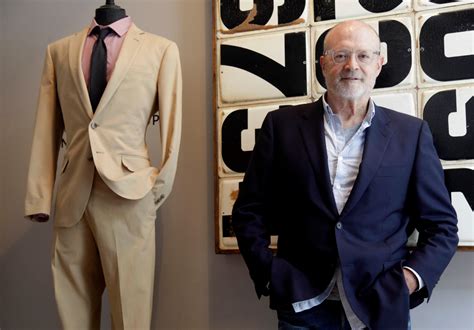Цитата Джейсона Фрида
Риск полагаться на горстку клиентов носит не только финансовый характер. Ваш продукт также подвергается риску, когда вы находитесь во власти нескольких крупных транжир. Когда какой-либо один клиент платит вам значительно больше, чем другие, ваш продукт неизбежно заканчивается тем, что в основном удовлетворяет конкретные потребности этого клиента.
Связанные цитаты
Традиционные продажи и маркетинг предполагают увеличение доли рынка, что означает продажу как можно большего количества вашего продукта как можно большему количеству клиентов. Индивидуальный маркетинг включает в себя стремление к доле клиентов, что означает обеспечение того, чтобы каждый отдельный клиент, покупающий ваш продукт, покупал больше продукта, покупал только ваш бренд и был счастлив использовать ваш продукт вместо другого для решения своей проблемы. Истинная, текущая ценность любого отдельного клиента зависит от будущих покупок клиента по всем линиям продуктов, брендам и услугам, предлагаемым вами.
Клиенты — отличный способ финансировать бизнес по многим причинам. Во-первых, клиентское финансирование обычно не разводняющее. Они хотят от вас чего-то другого, кроме участия в вашем бизнесе. Клиенты также помогают вам адаптировать ваш продукт к рынку. А клиенты помогут отладить и улучшить качество продукта.
Ваш бизнес должен определяться не с точки зрения продукта или услуги, которые вы предлагаете, а с точки зрения потребностей клиентов, которые удовлетворяет ваш продукт или услуга. В то время как продукты приходят и уходят, основные потребности и группы клиентов остаются, т. е. потребность в общении, потребность в транспорте и т. д. Какие потребности рынка вы удовлетворяете?
Создать новый бизнес, который приносит деньги и, что более важно, дает работу другим и, что более важно, дает клиенту продукт, который улучшает их жизнь, — это наша самая большая задача, наша самая большая возможность и самый большой подарок, намного больший, чем любая благотворительность. что мы можем дать нашему ближнему.
Мы растем, позволяя клиенту говорить нам. Поэтому, когда клиент говорит нам, что он разочарован, что он только что получил свой каталог, а у нас уже нет продукта, который он хотел, это говорит мне о том, что мы производим недостаточно. Мы позволяем клиенту говорить нам вместо того, чтобы создавать искусственный спрос на нашу продукцию. Всякий раз, когда вы производите продукты, которые людям не нужны, вы зависите от экономики, вы зависите от всего, что происходит. Поэтому мы постарались избежать этой ситуации.
Часто очень талантливым техническим специалистам чрезвычайно трудно принять точку зрения клиентов, которые часто ничего не знают о технологии и у которых могут быть сильные и, возможно, неправильные предубеждения о ней. Технические специалисты могут в глубине души полагать, что они лучше знают, что «должно» понадобиться клиентам. У клиентов, конечно, другая точка зрения. Им нужны продукты, которые решат проблемы клиентов и обеспечат другие преимущества для клиентов, и сделают это без чрезмерного риска или затрат. Нередко клиенты рассматривают передовые технологии как риск.
































